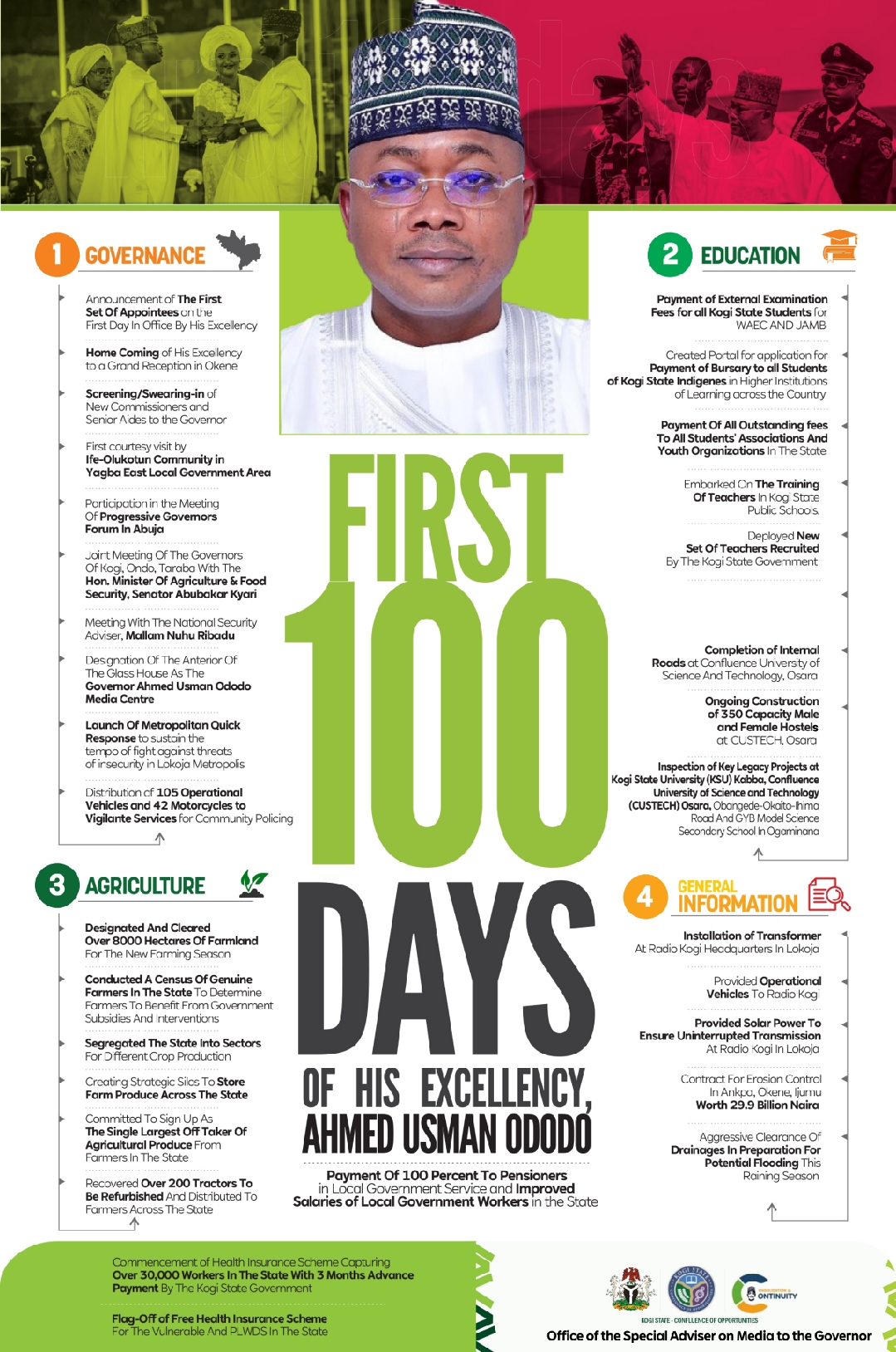
By Bob Amodu.
You’re likely familiar with the concept of the “resource curse.” In short, this
phenomenon occurs when a nation is endowed with natural resources like oil and
gas, but instead of experiencing socioeconomic development, the country struggles with poverty, corruption, and violence.

Kogi State in Nigeria is a prime example of this. As a rich solid mineral and oil-producing state, Kogi has not seen the sustainable socioeconomic development that one would expect.
In this article, we’ll take a closer look at Kogi State and the issues it faces as a result of being at the nexus of solid mineral and recently, as an oil-producing state and the development challenges of the host community.
An Overview of the Resource Curse in the global, national and sub-national spaces.
You may have heard of the ‘resource curse”–the idea that natural resources can actually be a hindrance to economic development, rather than an engine of it.
This is because, all too often, countries and regions that are blessed with natural resources find themselves plagued by corruption, conflict, and poverty.
There are a number of reasons for this. But one of the key factors is that natural resources tend to suck up all the attention and capital from governments and investors, while leaving little behind for other sectors of the economy. This can lead to what’s known as the ‘Dutch disease’, named after the economic slump that struck Holland after its discovery of natural gas in the 1960s.
This is just one example of how natural resources can have unintended consequences for
countries and regions that produce them. To explore this further, let’s take a look at Kogi State in Nigeria an oil-producing state.
The older oil-producing states have been struggling
with the consequences of the resource curse for many years. Will Kogi state join the list and struggle with the consequences of development, especially the oil bearing communities?
Socioeconomic Challenges of Kogi State.
When you think of Nigeria, what comes to mind? If you said oil, you’re not alone. The
country has been producing oil for over 50 years, and while it has brought wealth and progress to some, it has also brought poverty and hardship to many. Kogi State must flee from being such a prime example of this dichotomy.
On the one hand, Kogi State is blessed with an abundance of natural resources. This has,
however, not led to a significant degree of socioeconomic development. As seen in the growth of large cities like Lokoja, Ankpa,and Okene, this development has not been impressive or sustainable, and the majority of the population still lives in poverty.
In Ibaji LGA where floods have always dealt devastating blows and submerged the entire landmass, the oil-producing status of the state should be a soothing balm.
The resource curse has also created a number of development challenges for the people of Kogi State. These challenges include poverty, poor infrastructure, lack of access to basic
services such as health care and education, and lack of economic opportunities. For example, poverty levels in Kogi State are among the highest in Nigeria, with over 70% of the population living below the poverty line. In addition, the state’s infrastructure is inadequate and underdeveloped, with poor roads, limited access to electricity and water, and inadequate housing.
Furthermore, access to basic services such as health care and education is limited
due to lack of resources and infrastructure. Finally, economic opportunities are limited due to lack of investment in the state’s resources.
What are the reasons for this discrepancy? There are many factors at play, but one key issue is that natural resources can be a curse as well as an opportunity. When a government or nation depends on natural resources for revenue, it can lead to a “resource curse.” This
happens when that revenue is not used to benefit all of the people, but rather is squandered by corrupt officials or invested in unproductive projects.
This is a challenge that Kogi State faces as an oil-producing state. What are the options for change?
Issues Surrounding Oil Production and Human Rights.
The issues of human rights and oil production in Kogi State are complicated. On one hand, you have the people of the state who feel that they have not benefited from the oil resources
in their land. On the other hand, you have international companies who are eager to tap into those resources and who often operate with limited oversight.
Complicating matters further is the fact that Kogi State is also a host community to many of Nigeria’s oil refineries. The people of Kogi State see the refineries as both an opportunity and
a challenge. The opportunity lies in the jobs and revenue that they bring to the state.
For the State’s oil producing status, the many sons and daughters of the area paid the
supreme price. Have they been served justice? What about their survivors? Many have therefore been asking:
1.When did Kogi state start receiving 13 Percent Crude Oil Derivation?
2. How much was realized so far?
3.What is the benefit of this derivation to the Host Communities vis-a-vis the horrible state of Ibaji local government in terms of infrastructural deficits, degradation, poor standard of living et al?
4. Who’s to account for these funds?
5. Has the government taken steps to utilize the funds for the good of the people?
6. What can be done to hold the government accountable if it fails to utilize these funds
judiciously within the purviews and confines of the law?
The Impact of Oil Production on Local Communities
In many cases, local communities are the ones who suffer the most from the negative impacts of resource extraction. This is certainly true in Nigeria, where oil production has led to wide spread environmental pollution and social unrest.
In addition to the physical health effects of exposure to contaminated water and air, there is also the mental health toll of living in a constant state of insecurity. The Nigerian government
has been accused of human rights abuses, and there have been reports of violence and
intimidation by the military and oil companies.
These conditions have had a devastating effect on local communities. Many people have been forced to leave their homes in search of a better life elsewhere. Those who remain are often left struggling to make ends meet.
Options for Change:
Strategies for Sustainable Development in Ibaji. So what can be done to change the situation in Ibaji?
Here are some possible strategies:
1.Improve governance and accountability by enacting the law for establishing the
framework for the utilization and management of the derivation fund: One way to address the resource curse is to improve governance and accountability. This can be done by increasing transparency in the management of natural resources, improving
communication between different levels of government, and increasing citizen participation in decision-making.
2. Develop a diversified economy: by investing in other sectors such as agriculture, tourism, and manufacturing.
3. Improve infrastructure: by investing in roads, schools, hospitals, and other basic
services. Here, revisiting not just the stale NGN5B Ibaji road project inaugurated in
2017, but ensuring a strategic master plan for the area which will establish a new
development corridor between the east to north central Nigeria from Anambra state through Idah along the river Niger.
4. Address social problems: such as poverty, illiteracy, and unemployment.
The impact of flooding and neglect by the state government on the host community.
The consequences of the resource curse in Nigeria are far reaching, and they have had a profound impact on the host community in Kogi State. One of the most significant issues has been the flooding that has plagued the area for years.
In 2012, for example, more than 200,000 people were displaced by floods. And while the state government did provide some relief, it was not nearly enough to meet the needs of those affected. The 2022 flood came with a higher veracity of devastation and the next cycle of
floods in 2032 may completely obliterate Ibaji going by the 2022 prediction.
What’s more, the state government has neglected the host community in the words of the Ibaji
people who claim to lay the golden egg and in other ways as well. For instance, there are roads and not enough schools or hospitals in the area. And what little infrastructure there is
has not been properly maintained or has been destroyed by the annual floods. The result is a community that is struggling to survive. And unless something changes, it’s
only going to get worse.
Conclusion
It is clear that the state and community-level stake holders have to work in partnership to
mitigate and manage the possible consequences of the resource curse in the state.
The state has to provide basic amenities and infrastructure for the community, and the community has to be more proactive in holding the state to account. While the communities must articulate a practical and responsive infrastructure plan to make demands on the government, focusing attention on the community will help to develop human capital and create wealth-creating
opportunities for themselves. With the high level of insecurity currently witnessed, this will help develop relevant skills for the impending presence of oil companies. Additional plans
must now begin to take shape against the activities of oil thieves and militants as this will lead to a deterioration of the social fabric of the area and the state thus, limiting the ability of the state government to provide basic services and infrastructure.
In order to address these challenges, it is important for the state government to take a holistic approach by immediately establishing the Kogi State Oil Producing Area Development Commission manned by technically qualified and respected individuals, in sync with other oil-producing states to urgently provide the frame work for the expenditure of the 13% derivation fund.
This means not only focusing on the development of the oil and gas sector, but also on other sectors such as solid minerals, agriculture, education, and healthcare. It is only by doing this
that the state can hope to achieve sustainable development and improve the lives of its citizens across the three senatorial zones with zest.




